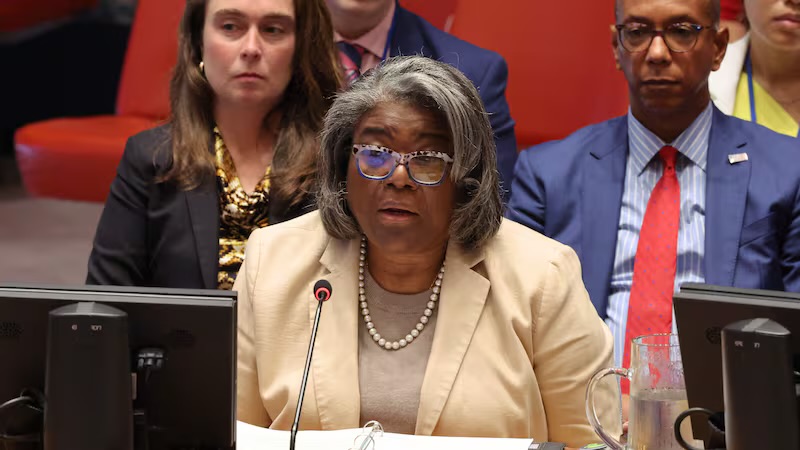The United States recently announced its support for adding two permanent seats for African countries to the U.N. Security Council. The announcement was made by U.S. Ambassador to the U.N. Linda Thomas-Greenfield. She emphasized the need for African voices to have a bigger role in global decision-making.
Current Representation of Africa
Africa currently holds three non-permanent seats on the 15-member Security Council. These non-permanent seats rotate every two years and do not carry veto power. Thomas-Greenfield noted that this arrangement does not allow African nations to fully contribute to important global discussions.
She argued that permanent seats for African countries would better represent their interests. However, she made it clear that the United States does not support giving these new African seats veto power. She believes the veto has caused problems, making it harder for the council to act effectively.
Why Veto Power Matters
The Security Council’s five permanent members — the U.S., China, Britain, Russia and France — all have veto power. This means they can block any resolution, even if most other countries agree with it. For example, Russia’s veto has stopped action against its invasion of Ukraine. Similarly, the U.S. veto has shielded Israel from harsh resolutions regarding the Gaza conflict.
While many countries want more permanent seats on the council, some worry about expanding veto power. They argue that the veto already creates enough deadlock. The U.S. agrees and only supports adding permanent members without giving them the veto.
The Push for U.N. Reform
Calls to reform the U.N. Security Council have been ongoing for decades. The council’s structure has not changed since 1945, when the U.N. was founded after World War II. At the time, the five permanent members were considered the world’s most powerful countries.
Now, many argue that the council should reflect today’s global realities. For example, many nations believe Africa, Latin America, and other regions should have a greater say in maintaining international peace.
In 2005, U.N. leaders agreed the council should become “more broadly representative, efficient, and transparent.” But despite these calls for change, progress has been slow. Attempts to expand the council have faced deep divisions among member states.
Biden’s 2022 Call for Reform
President Joe Biden advocated for the addition of more permanent and non-permanent seats in 2022. He demanded that Latin America, the Caribbean, and Africa be given permanent seats. The United States has additionally backed the permanent membership of Germany, Japan, and India.
Thomas-Greenfield did not mention Latin America or the Caribbean in her recent speech. However, a senior U.S. official stated that the U.S. still supports permanent seats for these regions, as well as Africa.
Small Island Nations Get a Voice
Another major part of the U.S. proposal is adding a non-permanent seat for small island developing nations. These 39 nations, home to 65 million people, are often overlooked in global discussions. They are spread across more than 1,000 islands and have unique insights on important issues, especially climate change.
The U.S. believes these nations should have a greater voice in the Security Council to share their experiences and solutions.
Looking Ahead: Will Change Happen?
Thomas-Greenfield said the U.S. will draft a resolution to formally push for these changes to the council. Some countries believe that before drafting a resolution, all 193 U.N. member states should agree on what the reformed council should look like.
The U.S. ambassador acknowledged that reaching total consensus would be difficult. As she remains hopeful that meaningful changes can be made. In her speech, she stressed that while total agreement may not be possible, the need for reform is clear. The world has changed since 1945, and the U.N. Security Council must change with it.

